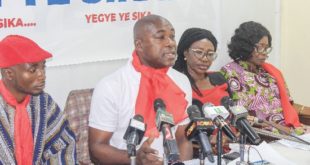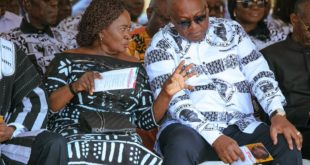Because of the complicated external debt restructuring negotiations and the involvement of multiple parties in the process, Ghana’s hopes of obtaining board approval from the International Monetary Fund shortly are expected to be delayed.
The Economist Intelligence Unit (EIU), a London-based economic and political analyst, says this.
The EIU predicted that Ghana would reach restructuring agreements on its public external debt during 2023–2024, involving both official and private creditors. This prediction was made in its 2023 Country Report on Ghana.
However, it makes the observation that, given the nation’s dire macroeconomic crisis, “the conclusion of a domestic debt-swap operation in February and increasing international attention on speeding up external debt restructurings, our core forecast remains that the IMF programme will be approved by mid-2023.”
“We expect Ghana to secure restructuring agreements on its public external debt during 2023-24, involving official and private creditors alike. This will include a combination of write-offs, maturity extensions and reductions in interest rates. We expect official creditors to agree to a deal in 2023, and this, combined with the domestic debt restructuring that has already been secured, should provide enough reassurance to reduce Ghana’s risk of debt distress and allow the IMF to approve the agreed programme”.
“However, there is a material risk that IMF board approval will be delayed owing to prolonged external debt-restructuring negotiations, given the involvement of multiple stakeholders in the process,” it noted.
At the beginning of the year, Ghana’s Finance Minister, Ken Ofori-Atta, predicted that the IMF Board would likely approve a $3 billion bailout for Ghana by the end of May 2023.
Mr. Ofori Atta asserted that Ghana has made considerable strides in debt restructuring and urged other creditors to support the nation’s request for an IMF program.
Many stakeholders have expressed disappointment over this because the nation had earlier hoped to secure an economic bailout with the IMF in March.
Ghana asked the IMF in July 2022 for a three-year, $3 billion extended credit facility (ECF). In December 2022, a deal with the IMF was reached with the intention of regaining investors’ trust, increasing reserve buffers, and enhancing fiscal and debt sustainability.
However, before the IMF’s Executive Board approves the ECF, a debt restructuring must be agreed upon with Ghana’s external creditors.
The EIU research also notes that given investor apprehension over Ghana’s large debt and protracted restructuring negotiations, the government faces a significant risk of failing to recover access to the international bond markets in the near future as a result of its conversations with the IMF.
The EIU however cautioned that Ghana’s business climate and aspirations to become a hub for West African trade will be hampered by macroeconomic uncertainty and a public debt problem. Progress will also be hampered by a weak regional regulatory framework, inadequate transport connections, and little overseas trade, save for commodities.
The research underlines the necessity for Ghana to continue its fiscal consolidation efforts in 2023–2027, supported by an IMF program, in order to put the country’s finances and debt on a sustainable course.
Source: Ghanatodayonline.com
 Ghanatodayonline.com News, Politics, Health, Education & More
Ghanatodayonline.com News, Politics, Health, Education & More



